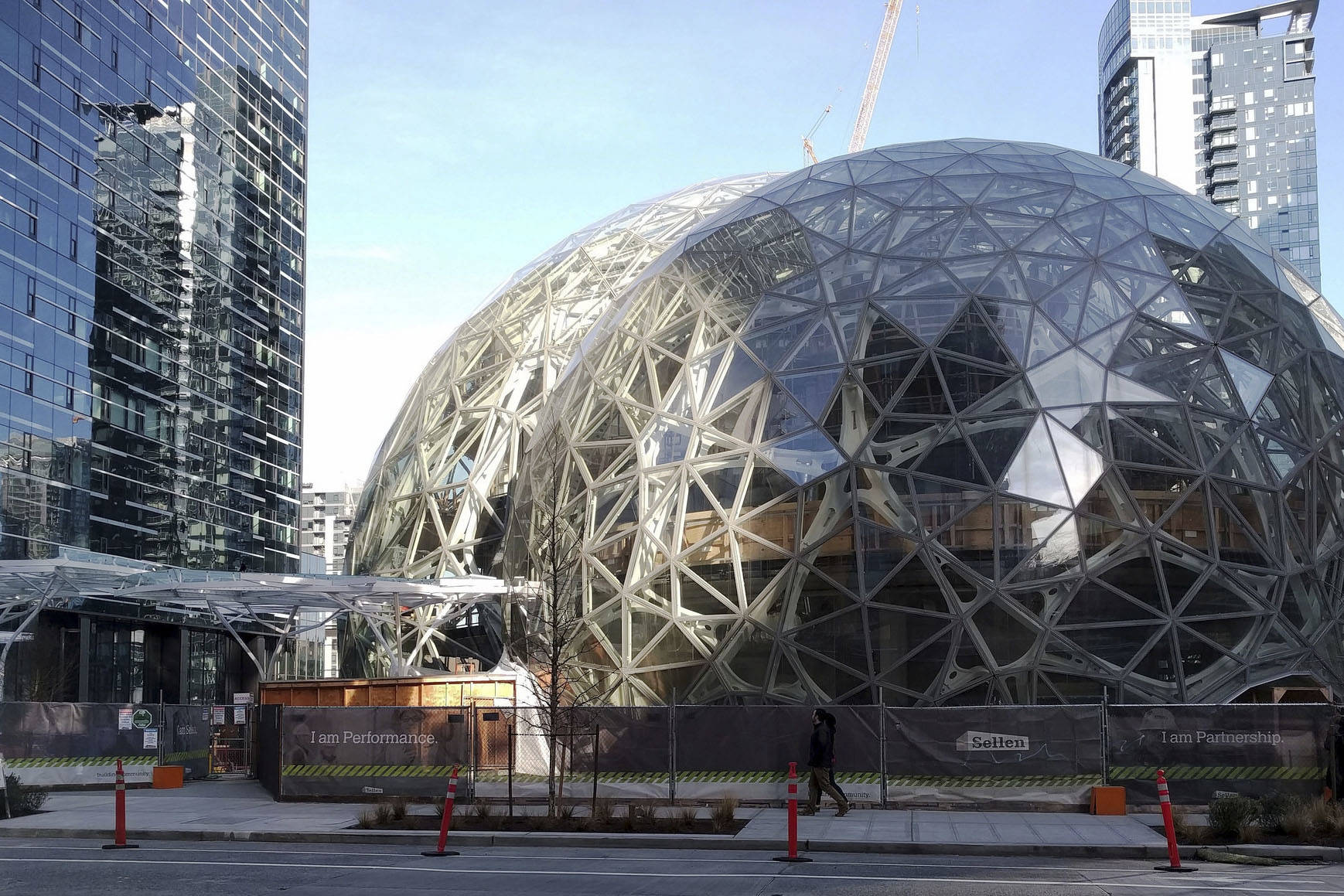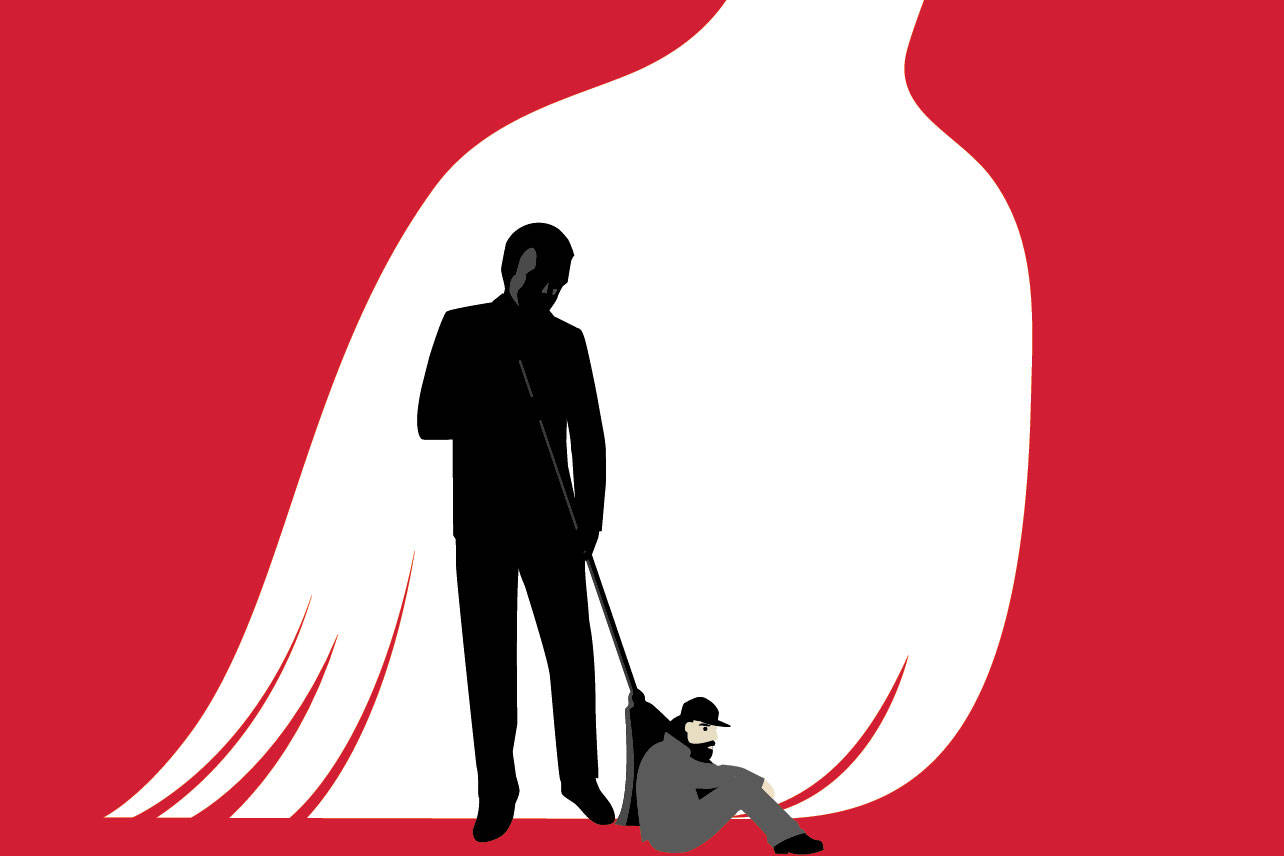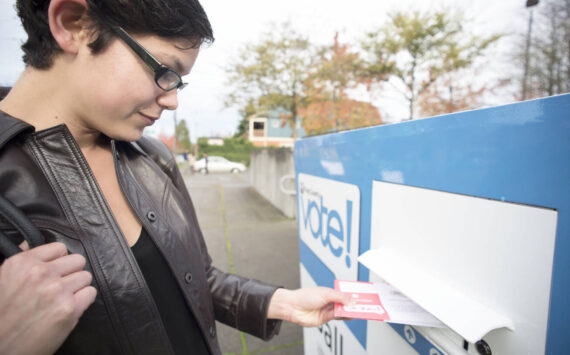For our year-end issue in 2015, we ran a comic about Amazon disappearing from Seattle. No one quite knew why the company and all its employees had vanished; the dominant theory held that Jeff Bezos had invented a time machine and disappeared from our era. But the why wasn’t as important as the so what. Amazon’s disappearance had some quick, positive impacts on the lives of those still in our comic Seattle: Soaring rents were suddenly in check; traffic was suddenly a little more manageable. But there was a downside, too: For some, Amazon was what brought their loved ones to Seattle; for others, Amazon workers were an important customer base for their small businesses.
At that time, suggesting, even in comic form, that Amazon did anything positive for Seattle was a risky position to take, and we heard about it from readers. As one online commenter so delicately put it: “ok so because we are now so dependent [on] shamazon if they disappear the city would collapse so we should bend over and be so thankful they are here. what kind of retarded logic is that? fuck amazon.”
Then, last week, Amazon made the surprise announcement that it was looking for a city where it could place a second, “equal” headquarters, and our 2015 thought experiment leapt off the comics page and into the business pages. To be clear, the announcement gave no suggestion that the company would leave Seattle; still, that’s how it was received by many, and the speculation about why the company was making the move was almost as wild as Bezos inventing a time machine. As for the so what, suffice it to say that our comic is no longer the only thing entertaining the idea that some good has come of Amazon.
With all the prognosticating, let’s try to pull the why and so what conversations back into the real world.
First, the why: The short answer is that Amazon is growing ridiculously fast, so fast that it says it will need a place to put 50,000 new employees on a campus the size of the one currently metastasizing in South Lake Union. The question becomes more controversial when one asks why Amazon didn’t decide to just put all those workers and buildings in Seattle. Seattle business interests and state Republicans were quick to blame our supposedly hostile business climate. State Rep. J.T. Wilcox, a Republican from Yelm, suggested on Facebook that “wrenching change” would be coming to City Hall, implying that policymakers would soon abandon their more-progressive-than-Yelm stances in the wake of losing Amazon’s growth.
Yet this narrative doesn’t pass the smell test. First, none of the “Blame City Hall” crowd can point to a specific policy that may have irked Amazon, and Amazon certainly hasn’t provided any clues. Meanwhile, we continue to learn about city policies that make us a playground for developers. Just this Sunday, The Seattle Times told us about huge rate hikes coming to our utility bills, in part because city infrastructure is increasingly stressed by developments that don’t pay their own way. As the Times reported: “Unlike other utilities in the area, SPU doesn’t impose growth charges when new buildings connect to its wastewater and drainage systems. And its water-system growth charge is the lowest in the area.” This may suggest why, in recent years, Seattle has been attracting corporate headquarters (Expedia, Weyerhaeuser), not repelling them.
Meanwhile, the few hints that Amazon has dropped about what it wants actually support Seattle city policies. Specifically, the company says it wants quality mass transit at its second headquarters—and of course the Seattle region just approved a massive investment in mass transit in the form of ST3. The biggest opponents of the measure were state Republicans like Wilcox. In this light, perhaps it’s the statehouse that needs some wrenching change.
But that’s assuming we think Amazon placing its 50,000 new workers elsewhere would be a bad thing—the so what of this discussion.
On the face of it, the idea of Seattle absorbing that many new workers, and making available twice as much Amazon office space, seems ridiculous. We are already the biggest company town in the U.S. Some worry that once a second headquarters is established, Amazon will have more leverage to make demands, taking an “our way or the HQ2-way” approach. But if this is the case, then City Hall needs to learn how to get tougher with Amazon, not nicer.
John Burbank at the Economic Opportunity Institute provided some sage advice when contemplating the possibility of Amazon mimicking Boeing by playing us against other cities: “Don’t repeat what happened with Boeing, where we gave the company everything it wanted and billions in tax incentives to stay in Washington. What happened? They laid off Washington workers and sent the jobs to South Carolina. Corporations like Boeing and Amazon are not good citizens; they don’t care about us.”
This isn’t to say nothing good has come of Amazon’s presence; far from it. All we’re saying is that when it comes to the whys and what fors, let’s be realistic, not cartoonish.
editorial@seattleweekly.com






